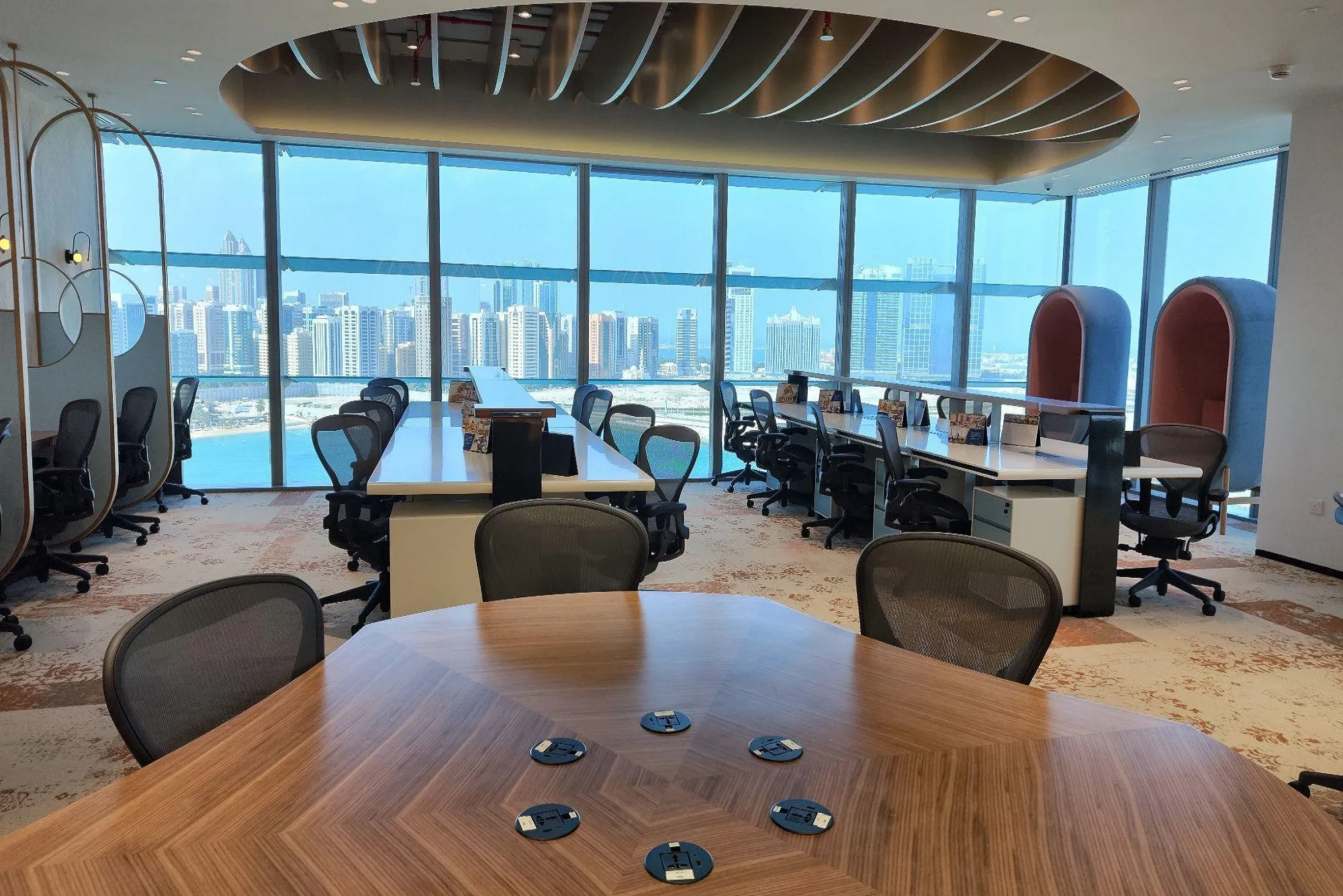A dynamic shift in the traditional office landscape has given rise to the concept of flexible workplaces, where the physical environment adapts to the evolving needs of businesses and employees. Whether it’s an open office layout, a vibrant coworking space in ADGM, or the concept of hot desking, the flexible workplace, often referred to as “flexispace,” is becoming a cornerstone for modern businesses aiming to enhance productivity, foster agility, and scale operations as required.
In the wake of the COVID-19 pandemic, the prevalence of remote work has surged, making the adoption of flexible workspaces a strategic choice for many businesses. This shift has shed light on the resilience of companies that can continue operations seamlessly while offering employees the freedom to choose where they work. The flexible workplace is more than just a physical space; it has become a second home for employees, a hub where daily tasks are executed, and collaborative efforts come to life.
Why Opt for Flexible Workspaces?
1. Cost-Effective Solution:
Embracing flexible workspaces eliminates the need for significant upfront costs associated with office fit-outs. Co-working spaces, such as those in Dubai, provide ready-to-use infrastructure, including furniture, conference rooms, kitchen facilities, and essential support systems like high-speed WiFi. This allows businesses to keep expenses in check while swiftly establishing their operations.
2. Scalability and Adaptability:
Start-ups and growing businesses benefit from the scalability that coworking spaces offer. Unburdened by rigid, long-term leases, companies can adjust their space requirements based on the dynamic needs of their operations. This flexibility is crucial for adapting to changing market conditions and expanding teams.
3. Agile Contract Options:
The traditional paradigm of multi-year tenancies is giving way to more flexible contracts. Businesses today value the freedom to make decisions that align with their evolving needs. Flexible workspaces allow for shorter and more adaptable agreements, enabling businesses to stay agile in a rapidly changing business landscape.
4. Centralized Support Services:
Co-working companies in Dubai and other global hubs go beyond providing physical space. They offer comprehensive support services, including concierge support, internet setup, and various other amenities. This centralized approach ensures that businesses can focus on their core operations while relying on a single point of contact for additional services.
5. Employee Satisfaction and Autonomy:
The flexibility afforded by these environments extends to employees’ work preferences. Working in a flexible environment enhances a sense of independence, allowing employees to contribute to an organization on their own terms and schedules. From private office spaces to light-filled common areas and scenic rooftop views, flexible workspaces prioritize employee comfort and well-being.
In essence, the adoption of flexible workspaces represents a strategic move for businesses aiming to navigate the complexities of the modern work landscape. Beyond the tangible benefits of cost savings and scalability, these spaces contribute to a positive work culture, where employees feel empowered, satisfied, and motivated to contribute their best efforts. As the business landscape continues to evolve, flexible workplaces stand as a beacon of adaptability and innovation.
azhill.com theskystars.com innerbeautys.com directdear.com basketbanks.com




